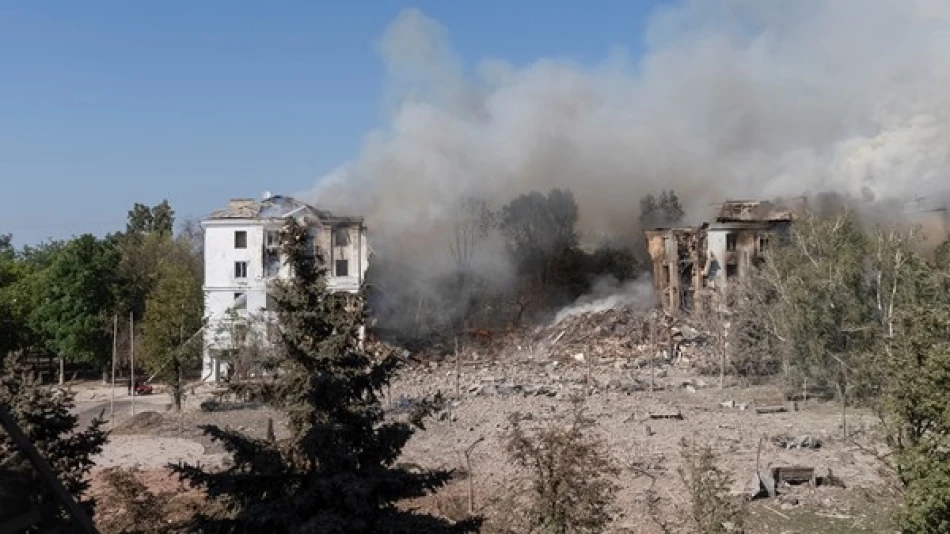
Russia Rejects European Troop Deployment in Ukraine, Stands Firm on Security Concerns
Russia Rejects European Peacekeeping Forces in Ukraine, Highlighting Core Conflict Over NATO Expansion
The Kremlin has firmly rejected any prospect of European peacekeeping forces being deployed in Ukraine as part of a future peace settlement, with officials emphasizing that preventing NATO military presence in the country remains a fundamental Russian objective. The stance underscores how deeply entrenched security concerns continue to shape Moscow's negotiating position, even as diplomatic discussions about ending the conflict gain momentum.
Kremlin's Clear Red Line on Foreign Military Presence
Kremlin spokesperson Dmitry Peskov told journalists Wednesday that Russia views discussions about deploying European peacekeeping forces "negatively," signaling that such proposals would face strong Russian opposition in any peace negotiations. The rejection comes as various European leaders have floated the idea of peacekeeping missions to help stabilize Ukraine following a potential ceasefire agreement.
Peskov emphasized that Russia's desire to prevent any NATO country military presence in Ukraine was "at the top of the reasons" that led to the conflict's outbreak in February 2022, framing the current war as fundamentally driven by security architecture concerns rather than territorial ambitions alone.
Security Guarantees Emerge as Central Negotiating Issue
The Kremlin spokesperson described security guarantees for Ukraine as "among the most important topics" in any settlement discussions, while noting that Moscow would not discuss specific details publicly. This positioning suggests Russia views the security framework as potentially more critical than territorial arrangements in determining the conflict's final resolution.
Historical Context of NATO Expansion Concerns
Russia's opposition to Western peacekeeping forces reflects decades-long concerns about NATO's eastward expansion. Since the 1990s, Moscow has consistently opposed the alliance's growth toward its borders, viewing Ukraine's potential NATO membership as an existential threat. The 2008 Bucharest Summit, where NATO stated Ukraine would eventually join the alliance, marked a significant escalation in Russian-Western tensions over this issue.
Implications for Future Peace Negotiations
Russia's firm stance creates a significant challenge for any comprehensive peace settlement. European leaders, particularly from France and Poland, have suggested that peacekeeping forces could provide security guarantees to Ukraine without full NATO membership—a potential middle ground that Moscow appears to reject outright.
Alternative Security Models Under Consideration
The rejection of European peacekeepers may push negotiators toward alternative security arrangements, such as neutral status models similar to Austria or Finland during the Cold War. However, Ukraine's leadership has consistently demanded concrete security guarantees, viewing neutrality without enforcement mechanisms as insufficient protection against future Russian aggression.
The Kremlin's position also suggests that any peace agreement would need to address broader European security architecture, potentially requiring negotiations that extend far beyond bilateral Russian-Ukrainian issues to encompass NATO's role in Eastern Europe more broadly.
Most Viewed News

 Layla Al Mansoori
Layla Al Mansoori






